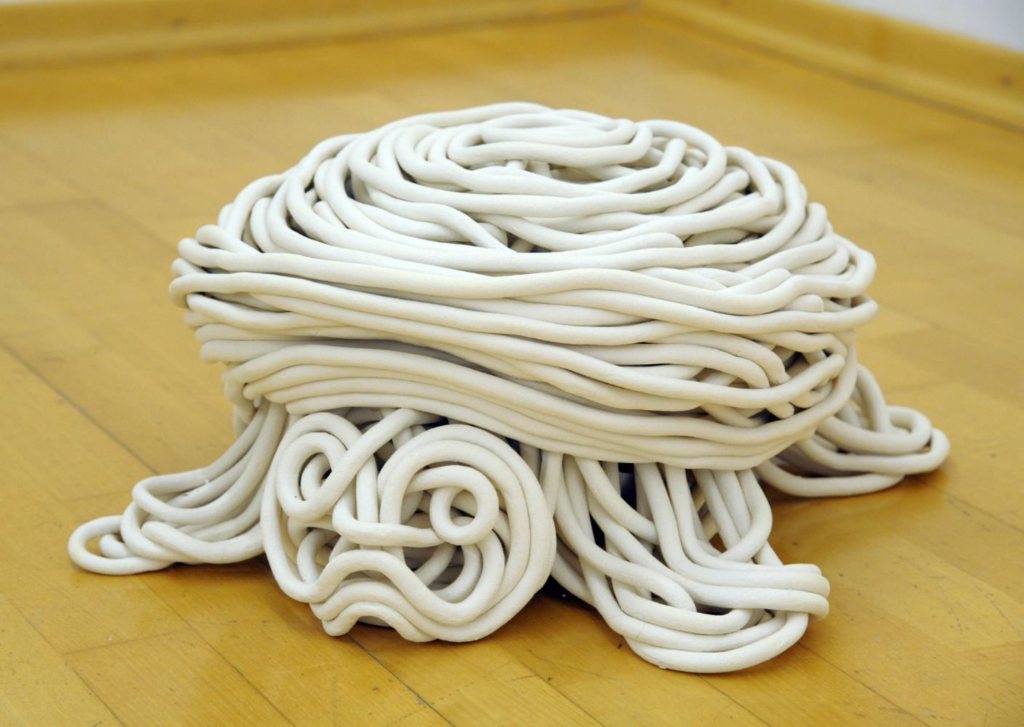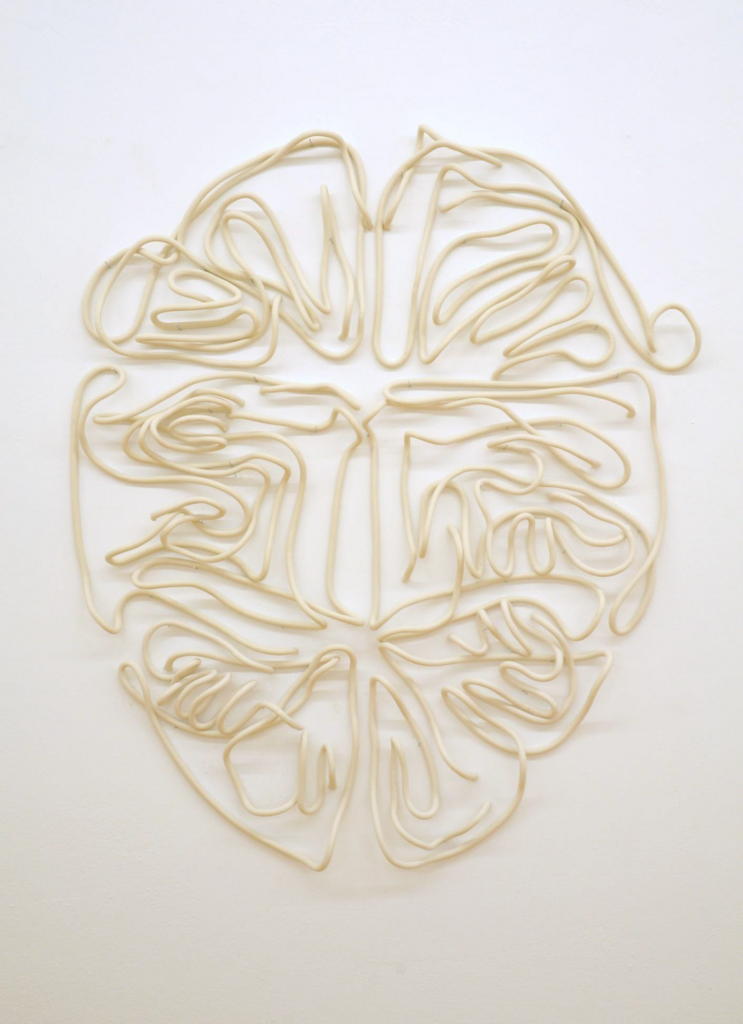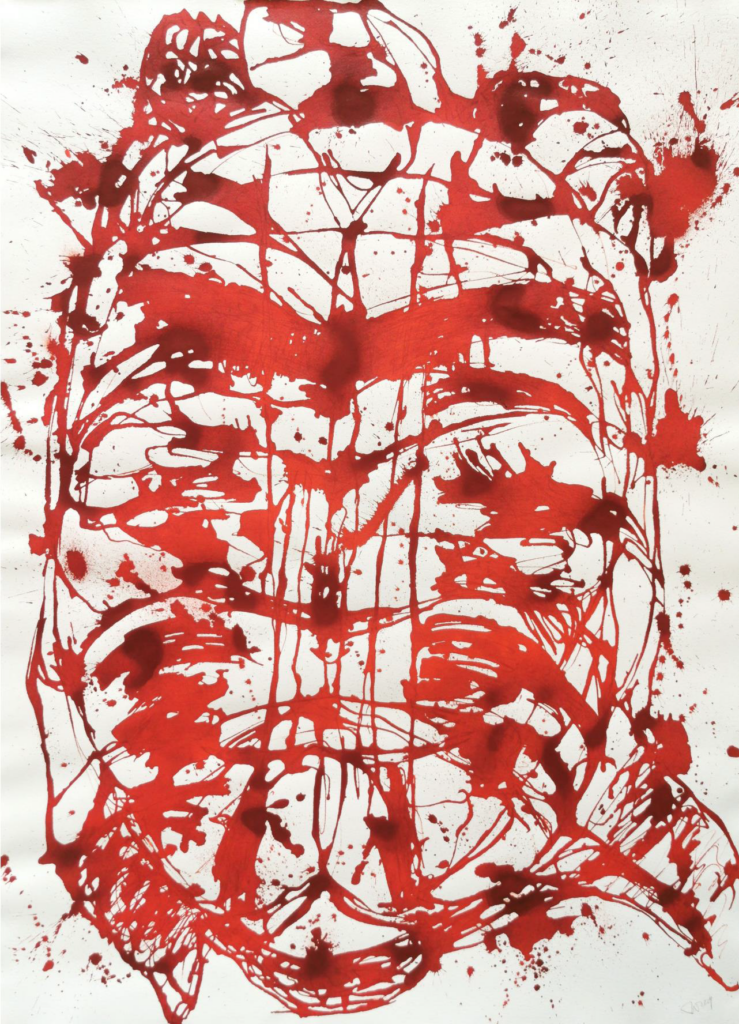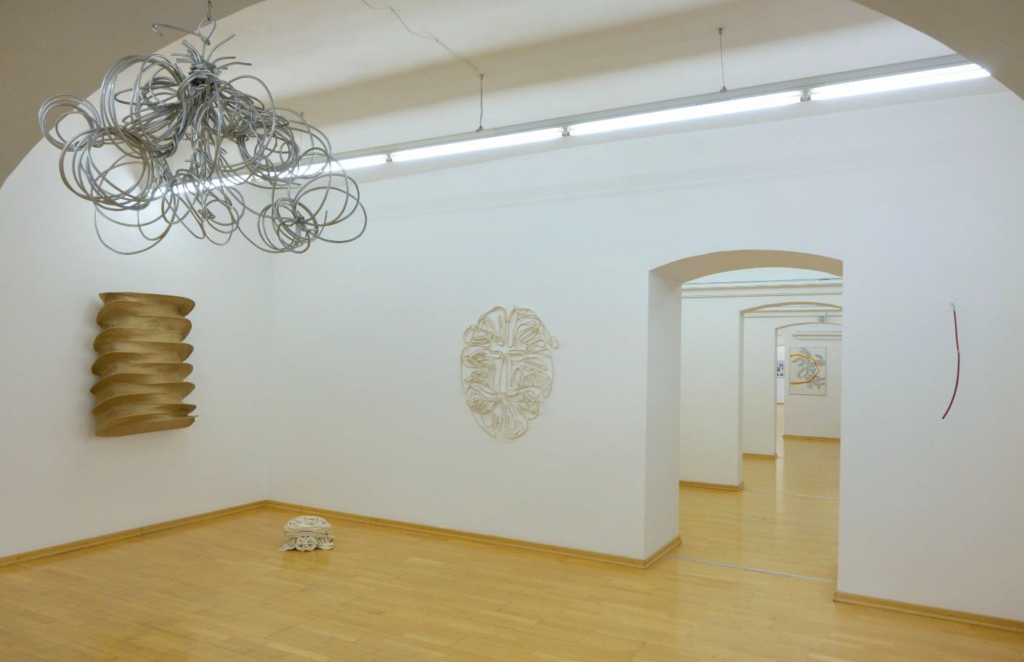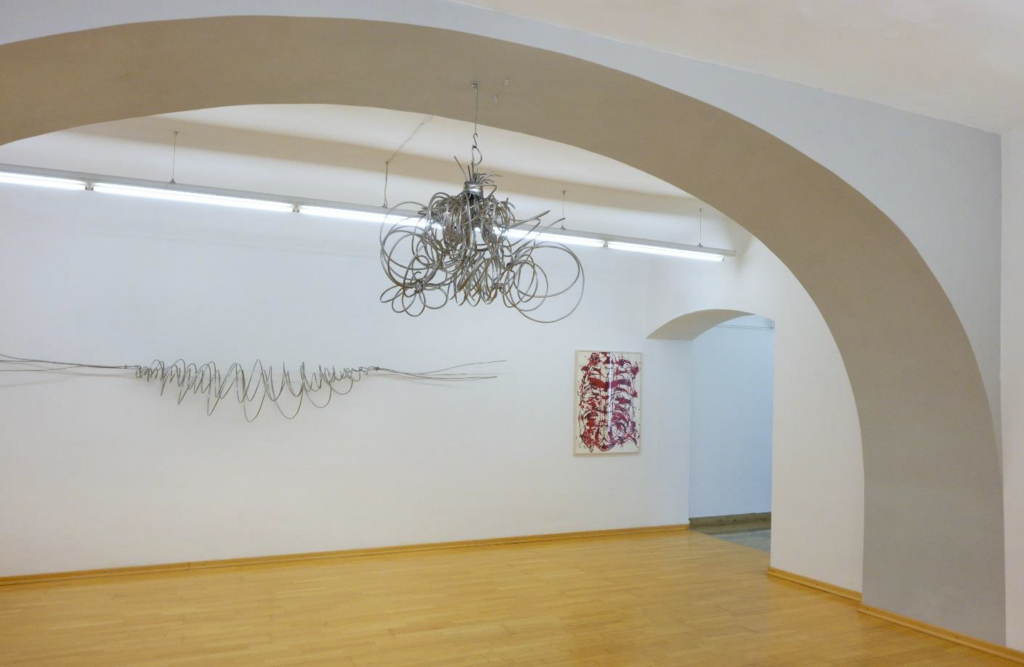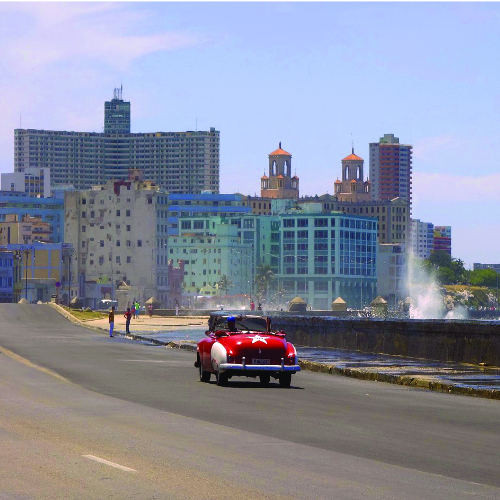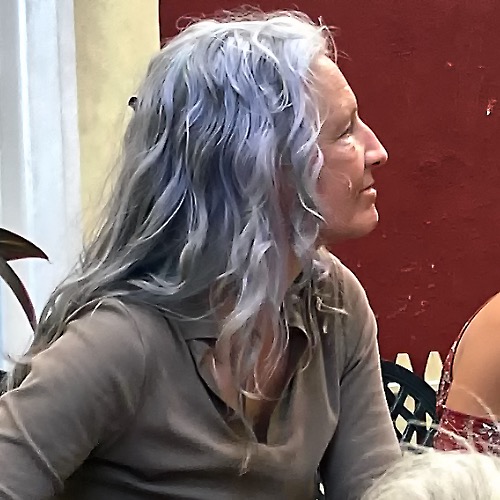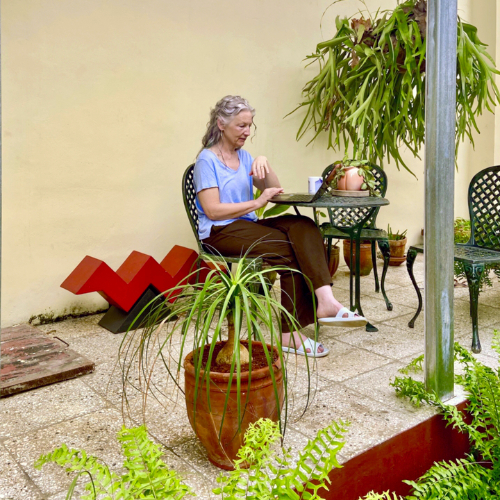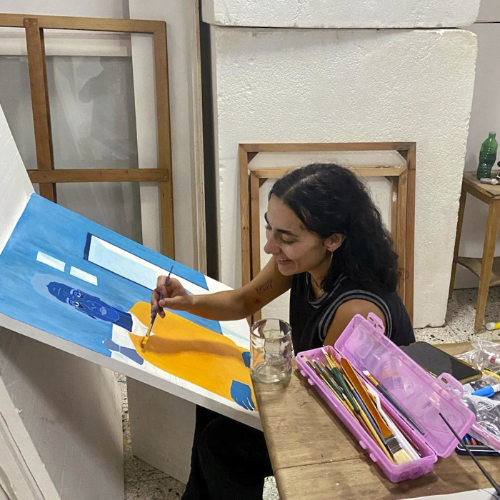Unpack Studio Havana
Artist in Residency
11.01. – 29.02.2024
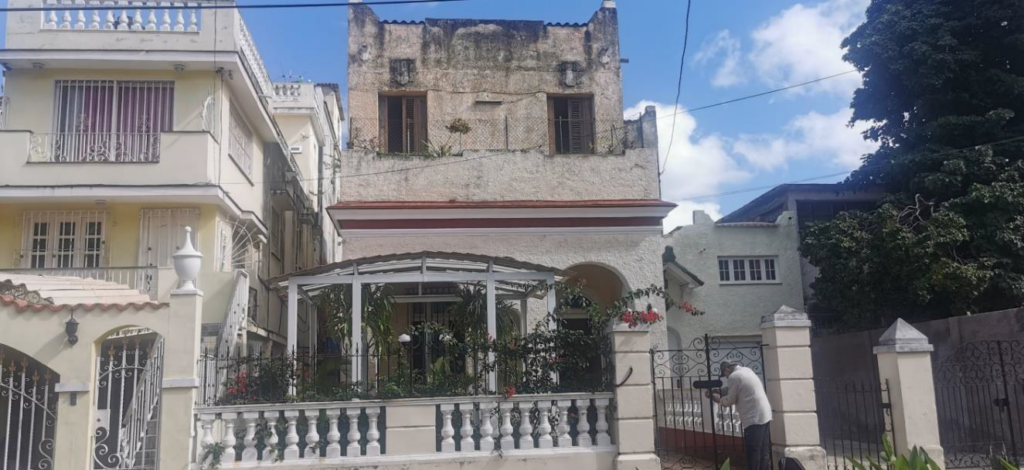
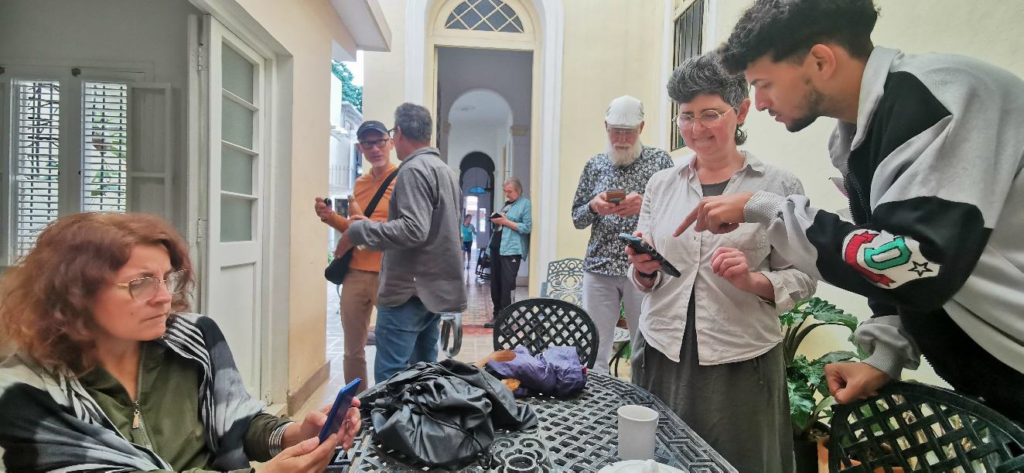
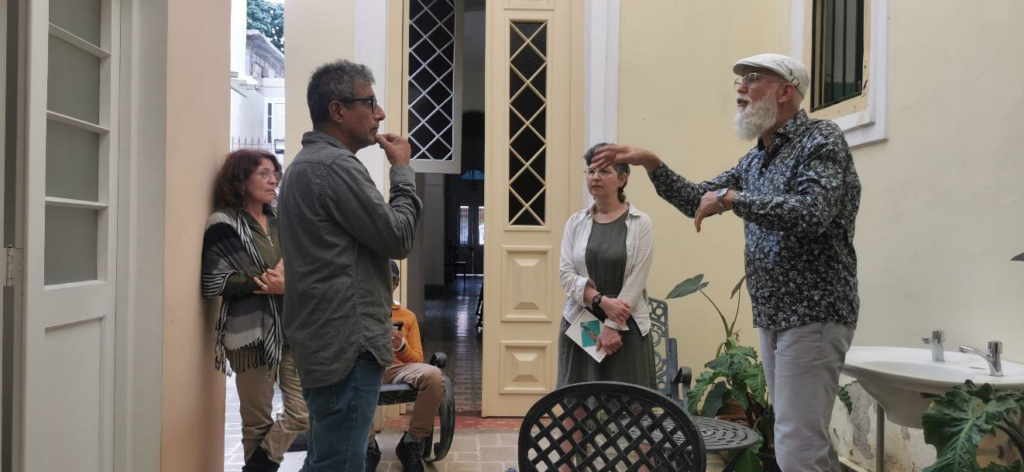
Sieben Wochen war ich (gemeinsam mit Thomas Steiner, meinem Mann) im Unpack-Studio Havana. Wir wurden sehr herzlich von Omar Estrada, dem Begründer von Unpack-Studio Artprojects and Residency, empfangen. Wir fühlten uns sehr wohl in dem schönen Gebäude in Vedado (Stadtteil Havanna).
Mehrere Wochen während unseres Aufenthaltes waren die kanadischen Künstlerinnen Laura Taler, Jess Dobkins und Alexandra Majerus (Mitgründerin von Unpack-Studio) im Haus.
Ebenso wohnten, während des Jazzfestivals von Havanna, auch die Musiker der Musikband „Primo Cubano“ aus Maine (USA) im Haus, die traditionelle kubanische Musik spielten.
Omar Estrada von Unpack-Studio Havana, ermöglichte uns mit seinen Kontakten inspirierende Begegnungen und einen dichten Zeitplan für Besichtigungen und Ausflüge, die zum Teil auch speziell auf unsere Bedürfnisse ausgerichtet wurden.
Der Besuch von ISA (Kunstuniversität), die Gespräche mit Künstler*innen.
Fast täglich wechseln sich in der pulsierenden Kulturmetropole Havanna Konzerte, Vernissagen, Lectures und Performances ab. Das Unpack-Studio ist eine Art Brennpunkt für diese vielfältigen Aktivitäten.
Wir trafen unsere Freundin und Kunstkuratorin Livia Pühringer in Havanna. Sie hat uns den Kontakt zu Unpack-Studio hergestellt. Zusammen mit ihr wurden wir in die österreichische Botschaft zu einem Künstlerabend in Havanna eingeladen.
Für mich galt es die Projektidee, die ich in Österreich entwickelte vor Ort auf ihre Tauglichkeit hin zu überprüfen. Während der Residency im Unpack-Studio Havana plante ich für Plastiken und zeichnerische Arbeiten zu recherchieren, die dann daheim ausgeführt werden sollten. Es sollte eine Art künstlerisches „Tradato“ (Traktat) entstehen.
Meine Idee beschäftigte sich mit der Spannung zwischen eingeschränkten materiellen Möglichkeiten und Strategien zur Lösung von Problemen. Von kulturellen bis zu religiösen Ansätzen.
Vor Ort entstanden fotografische Materialsammlungen und Videos, auch Tonaufnahmen, die nun zurück in Österreich, die Grundlage meines künstlerischen Projektes sind. Die Beschäftigung mit dem gesammelten Material während unseres Aufenthalts hat begonnen.
Hier einige Einblicke in meine Materialsammlung.
Malecon


Pflanzlicher Bewuchs an den Stellen der Ufermauer aus Stein, die regelmäßig von dem übertretenden Meereswasser überschwemmt wird, aber auch lange Trockenzeiten übersteht. / Fotografie Sammlung
Trabajo de Biblioteca


Bücherfund aus einer privaten Bibliothek in Havanna, die auf dem Müllplatz an der Straßenecke entsorgt wurden. / Fotografie Sammlung
Besuch und Gespräche mit Babalawo Mandy
(Priester der Santerìa: Afro-Kubanische Religion)


Die Wohnung ist gleichzeitig Zeremonienort. Der Babalawo ist eine Art Priesters der afro-kubanischen Yoruba Kultur. /Fotografie, Video, Sound
Ifà-Orakel
(seit 2005 ist das Ifà-Orakel als Immaterielles Kulturerbe der UNESCO anerkannt)


Befragung des Ifà-Orakels durch den Babalawo Mando. (Santerìa Priester)
/ Fotografie, Video und Sound
Sìntesis (kubanische Musikgruppe)
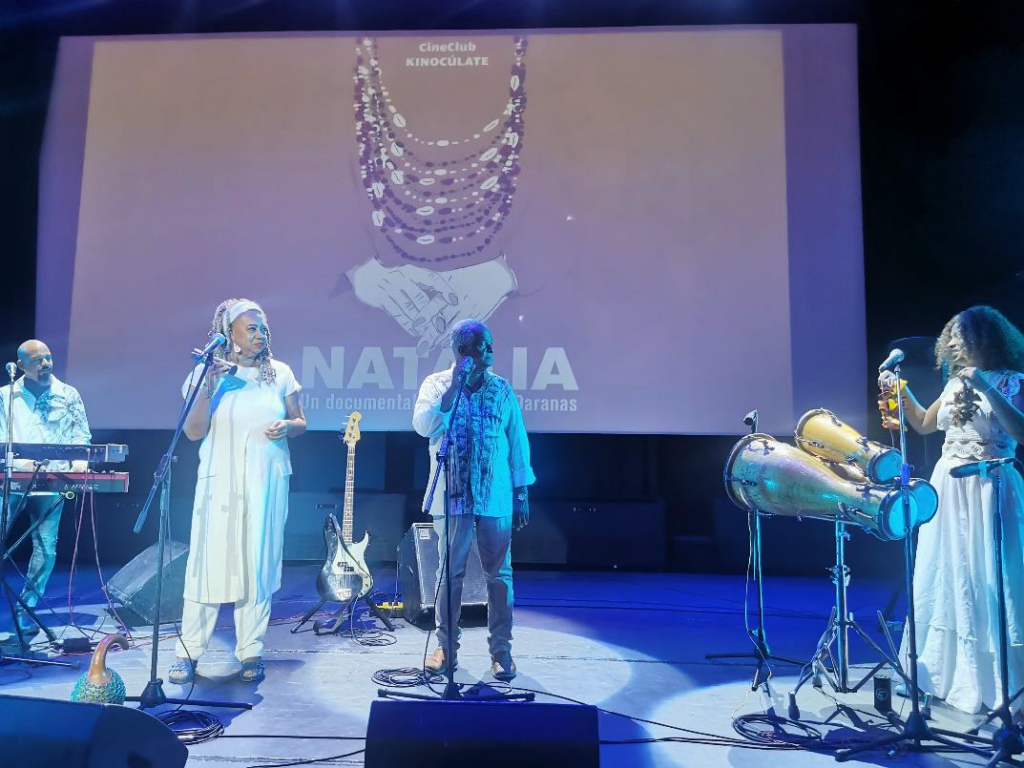
Konzert in der (Factory del Arte Cubano FAC). Ein Mix aus Yoruba-Rhythmen der Santerìa-Musik (Afro-kubanische Religion) und Jazz-, Rock-, Pop-Musik. /Video, Sound
Primo Cubano (Musikgruppe aus Maine, USA)

Konzert mit traditioneller kubanischer Musik, Unpack-Studio Havana /Video, Sound
Son del Guaso (Musikgruppe aus Havanna)
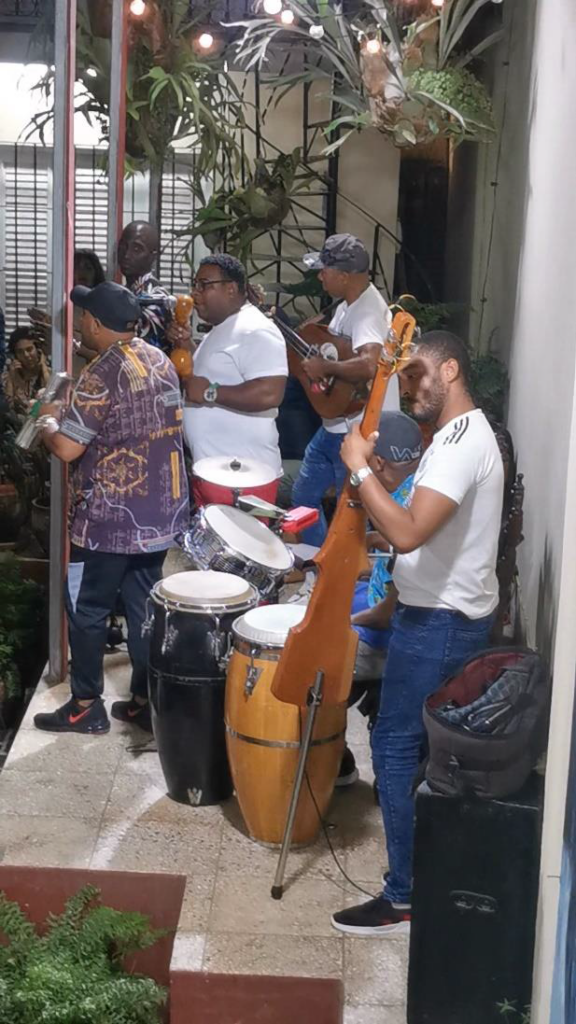
Konzert mit traditioneller kubanischer Musik, Unpack-Studio Havanna /Video, Sound
Yoruba-Musikevent

Callejòn de Hamel, Old Havana /Video, Sound
Santerìa Zeremonie

Eine religiöse Zeremonie, Rio Almendares, Vedado. /Video
Präsentationen

Dannys Montes de Oca Moreda, eine wichtige kubanische Kunstkuratorin, arbeitet mit Unpack Havanna zusammen und hat sich ausführlich Zeit genommen für unsere Werkpräsentationen. Mit ihr zusammen gab es noch weitere sehr interessante Gespräche über Kuba und die Kunst.



Zum Abschluss unseres Aufenthaltes lud Unpack-Studio zu einem Abend ein, an dem wir unsere eigene künstlerische Arbeit präsentierten.
Arbeiten nach dem Aufenthalt
im Atelier in Linz entstanden.
Die Arbeiten Tortuga, Plastron, Skip stehen In Bezug zu meiner Befragung des Ifà-Orakels in Havanna.
Die Arbeiten wurden im Oktober 2024 im
NoeDok Niederösterreichischen Dokumentationszentrum für Moderne Kunst / St. Pölten
in der Ausstellung ZEHN gezeigt.
Sie waren Teil der Rauminstallation Inventory.
In dieser Ausstellung setzte ich Skulpturen aus den letzten Jahren mit den neuen Arbeiten in Beziehung. Die verwendeten Materialien sind Draht (Blitzschutzdraht), Harz und Papier, gebrannter Ton und Tusche.
Das so entstandene Inventar im Ausstellungsraum beschreibt den Zustand einer Infrastruktur, die Bereiche wie Technik, Macht und Magie verhandelt. Die Ihre Gemeinsamkeit der einzelnen Elemente ist die Linearität. Mithilfe der Linien strukturiert und konstruiert sich eine Art Lebensraum.
Die vorgestellte Infrastruktur ist in ihrer unmittelbaren Wirksamkeit funktionslos, da
Anschlüsse, Schalter, Leuchtmittel und Ritualwerkzeuge fehlen.
Die Arbeiten als künstlerische Zeichen, öffnen einen ästhetischen Raum, der auf poetischer Ebene die Möglichkeit für eine Debatte bietet. Wichtige Themen unserer Zeit können losgelöst von Sachzwängen und Interessensgebundenheit betrachtet werden.
Was braucht es, um die Elemente zu aktivieren und sie zu einer funktionierenden Sinnhaftigkeit zu verbinden?
